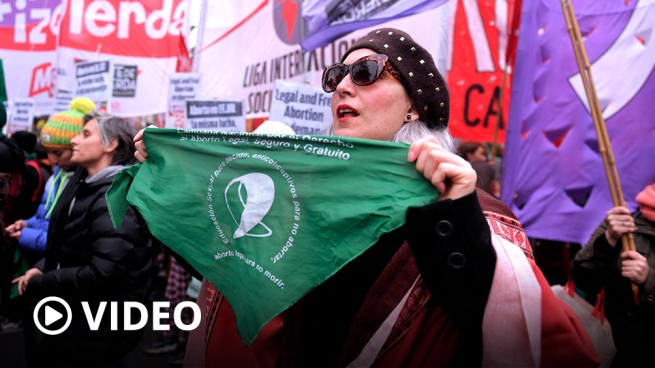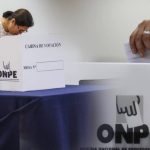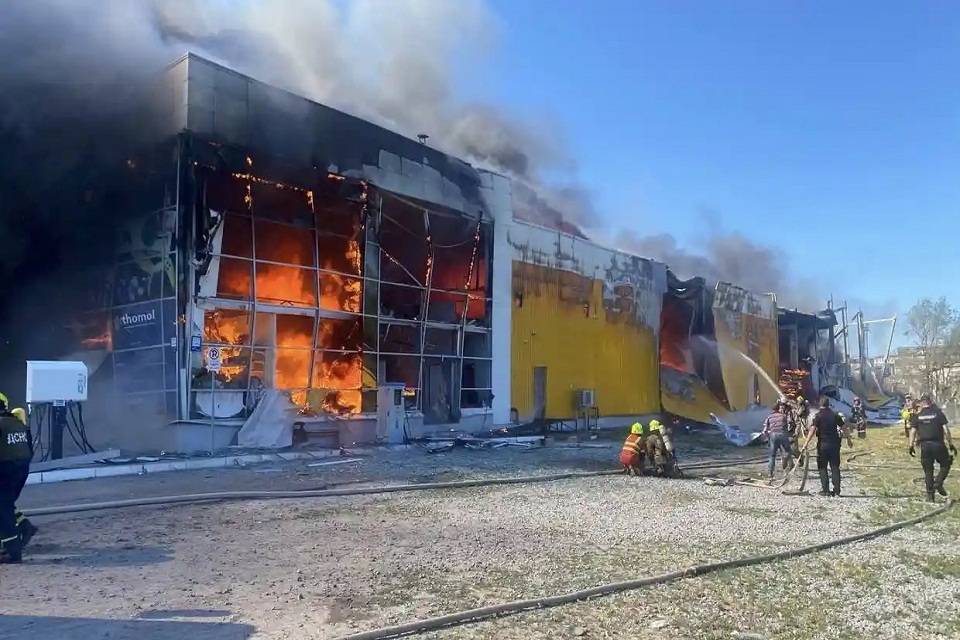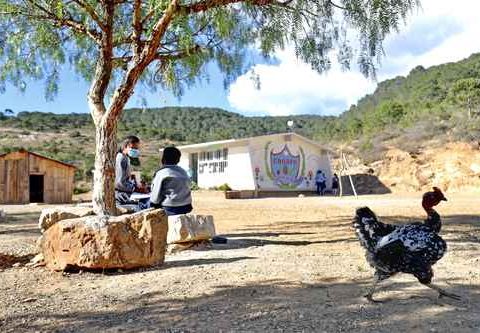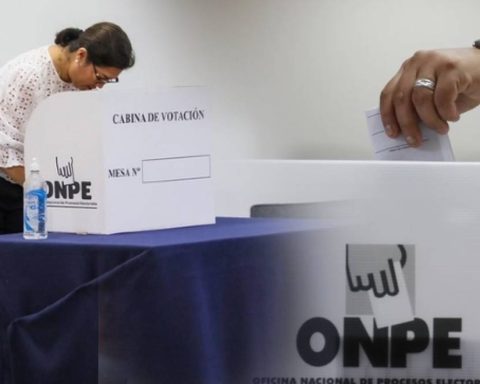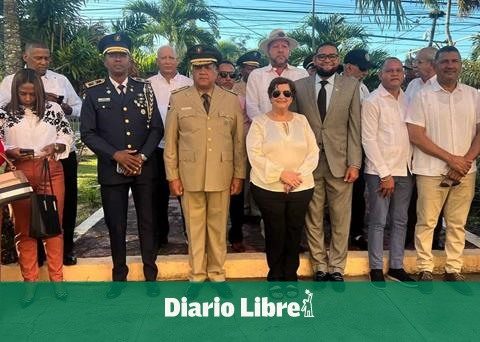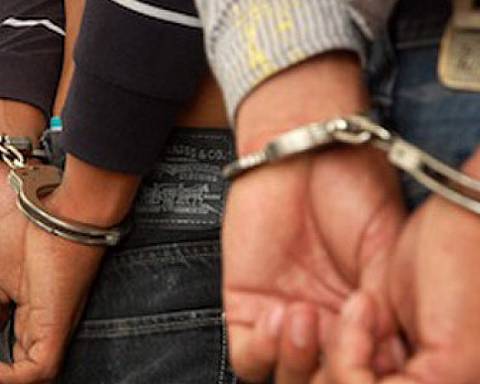Militant and feminist groups demonstrated this Monday afternoon in front of the United States embassy, to repudiate the ruling of the Supreme Court of that country that repealed the right to abortionwhich had been legal since 1973, and declared a “global state of alert”.
The demonstration was called by the National Campaign for the Right to Legal, Safe and Free Abortion and gathered at 4:30 p.m. at the door of La Rural, from where it marched to the US diplomatic headquarters, located on Avenida Colombia at 4300 in the Buenos Aires neighborhood of Palermo. , where a “green scarf” was performed.
“We repudiate the decision of the Supreme Court of Justice of the United States to annul the ruling Roe v. Wade, revoking at the federal level the constitutional protection of the right to abortion that governed for almost 50 years in that country. The United States Court is attentive to this resolution against the principles of freedom and equality, especially for the most vulnerable people such as racialized migrants, and the LGTBQ+ collective “, declared the leaders of the Campaign in front of the embassy, completely fenced.
“It is a regressive measure that sets a serious precedent in terms of Human Rights in that country and lacks protection of very personal rights against the powers of the State.. From now on, it will depend on the legislation of each State that a pregnant person can access an abortion in safe conditions or that she is pushed to interrupt the pregnancy in precarious conditions for her health, or that she is exposed to criminalization “, they added.
They also issued a “new alert” in defense of fundamental rights for women, lesbians, transvestites, trans and girls around the world and extended their “feminist solidarity networks” with activists in the United States.
The march was led by historical referents of the campaign such as Nina Brugo and Nelly “Pila” Minyersky, who, along with other women referents of the organization, held the extensive green flag of the campaign with the scarf around their necks.
boards, they marched down Av. Sarmiento and partially blocked the street, raised signs and handkerchiefs, and shouted the slogans of the claim, as well as songs of struggle.

During the march from La Rural to the embassy, they shouted “My body, my choice” (“my body, my decision”), and sang: “Alert, alert to those who walk the feminist struggle for Latin America, take care, take care the machistas, Latin America is going to be all feminist”, among other songs.
During the pañuelazo, Nina Brugo told Télam : “There is a fundamental issue here, just as our bill was responding to need and health, it also responded to the human rights of women, and the United States was also the one who signed the international treaty for the defense of women’s human rights to decide. That is being violated and that is what we want to express, not only here but worldwide, because that is going backwards. As a French philosopher says, it seems that women’s rights are reversible and we are not going to allow it”.

At the embassy they spray-painted “Global Abortion” on the pavement and set off green flares as they raised their handkerchiefs.
Mercedes Trimarchi, a member of the Campaign, told Télam: “The fact that we have to be in constant care of the rights we have conquered and of the laws is also part of the learning that we are having here in Argentina with the green tide, and it is even important highlight that, even if we have a law, there are difficulties in access”.
Meanwhile, another representative of the Campaign for the right to legal, safe and free abortion, Yamila Picasso, told Télam that they have contact with protesters from the United States, and assured that “Argentina is a regional and world reference” with respect to the fight for the right to abortion.
“The green scarf is a symbol of how the network of the feminist movement is, even in the United States we have seen how they took the green scarf for their demonstrations“, he highlighted, telling that this emblem emerged in Argentina in a National Meeting of Women until the Campaign was organized and approved as a symbol of struggle with the logo in 2005; from then on, they began to use and distribute it. And after 2017, when the “first global cry for legal abortion” was made on September 28, the handkerchief “began to travel everywhere.”
“It fills us with pride to see how the compañeras from different countries come out to fight for that right with this symbol that is ours,” she added.

In addition, wearing the scarf refers to the struggles of the Mothers and Grandmothers of Plaza de Mayo for human rights: “we decided to continue with that tradition of wearing a scarf, we do not tie it to the head but to the neck, but it is in respect for their example of struggle”, concluded the referent.
Among the demonstrators were the deputy of the Frente de Todos Cecilia Moreau, the deputy of the Left Front, Romina del Pla; the national leader of the MST, Celeste Fierro, and the mayor of Quilmes, Mayra Mendoza, among others.
The renowned writer Claudia Piñeiro and North American students also participated in the claim.
“We mobilize because we are concerned. What is happening today in the United States is a right-wing Court, and in Argentina we have the same situation,” Moreau told Télam.
“Women’s rights are always in danger. We never have to take them for granted or conquered, in that it is good that all of us who believe in these struggles are united, “considered the deputy.

For her part, Fierro pointed out that the struggle for gender rights is “transversal” and is also “a class issue.” In this regard, he pointed out that “those who have resources in the United States will be able to travel to states where it is not yet prohibited. It is always women with fewer resources, working women and the poor who are pressured not to be able to decide about their sexuality and their reproduction and many times condemned to secrecy and death”.
Among the protesters, a group of students from the United States, between 18 and 21 years old, felt challenged by the call and decided to participate. “This topic is very important to us because, although I am from California, there are students who are from Texas and more conservative states that put us in danger,” Sophie told Télam.

Meanwhile, the writer Claudia Piñeiro told Télam during the mobilization: “It is important to demonstrate today because feminism is transversal and has no borders. Obviously, the United States is a country that has a lot of political weight, so we cannot allow them to be talking everywhere about what they think of the ruling, as the Vatican or Vox do in Spain, and we do not say what we think. In Argentina I don’t think the right to abortion is in danger at all, because there is a law and many young people to defend it.”
“The Constitution makes no reference to abortion and none of its articles implicitly protects this right,” Judge Samuel Alito wrote, speaking for the majority, in the Court’s ruling, adding that the landmark Roe v. Wade from 1973 was to be “nullified”.
This ruling established the constitutional right to abortion before fetal viability, which, according to most experts, occurs around 23-24 weeks of pregnancy, a decision that was reaffirmed in 1992 in the case Planned Parenthood v. Casey.
